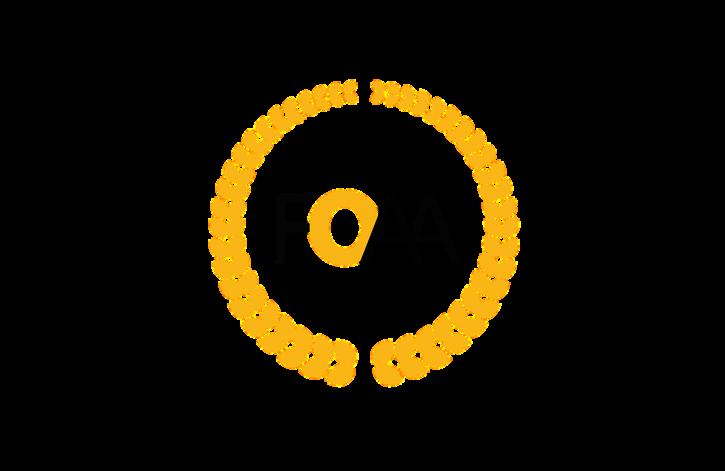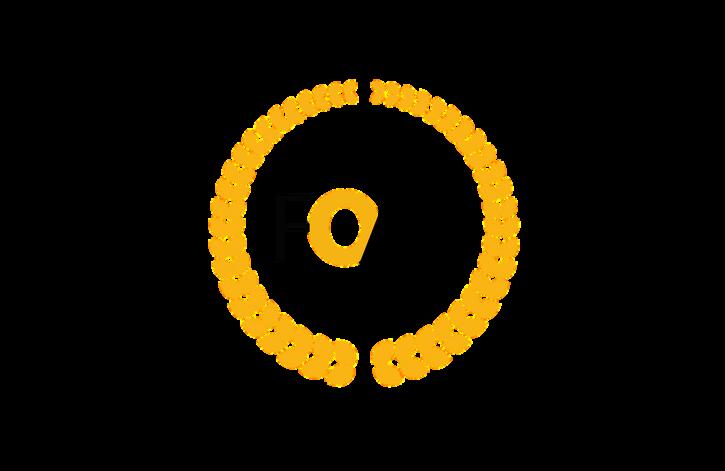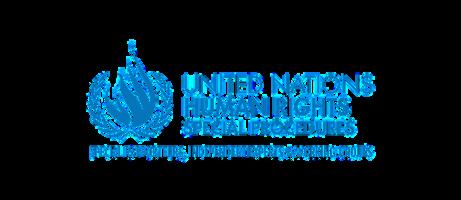CELEBRATING WOMEN IN ACTIVISM AND CIVIL SOCIETY:
The enjoyment of the rights to freedom of peaceful assembly and of association by women and girls
In his 2020 report to the United Nations General Assembly, Celebrating Women in Civil Society and Activism, the Special Rapporteur, Clément N. Voule, explores the myriads of ways in which women-led organizations and movements contribute to long-lasting progress in human rights, peace and sustainable development. The report argues that in order not to lose important gains around the world, these movements must be recognized, protected and resourced.
Women and girls lead change in a world of crisis:
Women coordinated and inspired millions of people to join democratic movements and revolutions in Sudan, Lebanon, Algeria, Chile, Iraq and Nicaragua.
The #MeToo movement has triggered major reforms in law and practice.
Black women are leading the racial justice movement around the world.
Intergenerational women in Chile, Ireland, Mexico, Poland, South Korea, Timor-Leste and the United States united to protect sexual and reproductive rights.
The women-led union movement successfully advocated for the adoption of the ILO Domestic Workers Convention, 2011 (No. 189) and the ILO Violence and Harassment Convention, 2019 (No. 190).
Women lead the Covid-19 response, representing more than 70 per cent of the global health and social care workforce.
International law obliges
More and more indigenous and rural women are taking up positions of leadership:
In 2017, 5,000 people from 2,000 communities unanimously elected the first woman Secretary-General of the Indonesian Indigenous Peoples Alliance of the Archipelago (AMAN).
The Coordination of Indigenous Organizations of the Brazilian Amazon (COIAB) elected its first female president in 2017.
The Association of Community Forestry in Guatemala, Utz Che’, which represents 113 indigenous communities, approved new statutes giving women parity in leadership.
States to ensure the equal rights of women to freedom of peaceful assembly and of association
International human rights law imposes upon States a positive obligation to respect, protect, and facilitate the enjoyment of the rights to freedom of peaceful assembly and of association to everyone, without distinction or any kind of discrimination, including on the basis of sex and gender.
Under Articles 21 and 22 of the International Covenant on Civil and Political Rights (ICCPR), in connection with articles 2 and 3, States must ensure the equal right of women to the enjoyment of these fundamental freedoms.
This means that women in all their diversity should enjoy the right to form, join and manage associations (registered and unregistered) and the right to hold and participate in peaceful assemblies without discrimination.
Article 7 of the Convention on the Elimination of All Forms of Discrimination Against Women (CEDAW) further requires States to take all appropriate measures to guarantee that women are able to participate in political and public life, including the rights
of women to participate in non-governmental organizations and associations.
The rights of women to form and join workers’ associations is recognized in the International Covenant on Economic, Social and Cultural Rights and treaties adopted by the International Labour Organization (ILO), including the Domestic Workers Convention, 2011 (No. 189) and the Violence and Harassment Convention, 2019 (No. 190).
Under these provisions, States must not only provide legal protection and abolish discriminatory laws, but also adopt positive measures in all areas to achieve the effective and equal enjoyment by women of all human rights.
States should take into account that “discrimination against women is often intertwined with discrimination on other grounds such as race, colour, language, religion, political or other opinion, national or social origin, property, birth or other status.”
Key findings
Despite considerable progress in gender equality, discriminatory practices and gender-based violence persist in most countries and continue to go unrecognized and unaddressed, with significant impact on women’s ability to fully enjoy their rights to freedom of peaceful assembly and association.
Women and girls who exercise these rights not only face well-documented patterns of state repression – that men also face – but many additional barriers and challenges that are gendered, intersectional and based in deeply rooted discriminatory social norms.
Certain women and girls confront even greater threats to their enjoyment of assembly and association life due to compounded forms of discrimination on the basis of their age, race, ethnicity, national origin, sexual orientation and gender identity.
In many countries the situation is worsening, with roll backs of women’s rights and a global resurgence of patriarchal ideas and, violent misogynistic and homophobic behaviors.
Gendered and intersectional barriers, reprisals and backlashes
1. At home, in the family and in the community
Some of the most significant barriers to women’s enjoyment of these rights begin at home, where women and girls continue to live under patriarchal control, face gender-based violence and experience wrongful stereotyping, which prevent and punish participation in public life.
2. In public places
Sexual violence continue to be used by State and non-State actors as a weapon to terrorize peaceful protesters and scare women away from the streets. Women who speak out and report these attacks often face stigmatization and smear campaigns. Women taking part in gender equality marches and rallies are frequent target of attacks, including physical abuse, verbal threats and sexual violence.
3. At work
Most of the world’s working women labor in informal and unprotected work and they are less likely than men to join in trade unions and enjoy their assembly and association rights. Women also face gender-based violence at work and gendered forms of reprisals for their organizing.
4. In the political sphere
Despite the successes of individual women and progressive legislation, women generally experience persistent obstacles to political participation such as gender-based violence, harmful gender stereotypes and financial barriers. Women remain excluded from peace negotiations and processes.
5. In the digital public sphere
The digital gender divides are growing, with only 40 per cent of women globally connected to the Internet, compared with 58 percent of men. When services are available and women are able to connect online, they face rampant online harassment and social media attacks that seem coordinated. States’ and digital tech companies’ efforts have not been sufficient at addressing these attacks.
6. Within civil society and social movements
Civil society organizations and social movements at large are still reluctant to address gender-based discrimination, violence, and the marginalization of women in their own structures and practices. While there is a growing number of women in the sector, women are far less likely to be found in the leadership ranks.
7. In the economic sphere
Many women-led organizations and movements are informal, grass roots and chronically underfunded, especially in the global south. Legislation restricting civil society access to funding as well as stringent donor requirements may have a disproportionate impact on women’s rights organizations. The more affected by these restrictions are those working on sexual and reproductive rights, and those seen as promoting views threatening “religious” or “national” values.
COVID-19 has increased risks and barriers
The COVID-19 pandemic has heightened the gendered and intersecting inequalities, further constraining civic space for women around the world.
COVID-19 has increased the risk of attacks against women exercising their rights to peaceful assembly and association, with worrisome reports on the misuse of emergency measures or arbitrary application of stay-at-home orders and limitations on public gatherings against women human rights defenders and activists. There are also reports of police using COVID-19 directives to attack and target lesbian, gay, bisexual, transgender and intersex (LGBTI) organizations.
The COVID-19 pandemic has also laid bare the discrimination and exclusion facing women in front-line work. The pandemic has left predominantly female health and social workers in the untenable situation of not being able to organize and mobilize to demand protective equipment necessary to keep them and their families safe. Many informal workers, including domestic workers, have been force to take extraordinary risks without support and protection.
Domestic violence and online gender-based violence has been exacerbated by long periods at home during COVID-19, affecting many women in civil society.
The health crisis also threatens women’s and gender equality organizations, especially at the grassroots level, which often survive on foreign and international funding and may lose vital support with shifting of donors’ priorities.
There is no acceptable justification for the continued trends of discrimination and violence described in the report, much less for regression of hard-fought gains due to the COVID-19 pandemic.”
UNSR Clément Voule
COVID-19 recovery “unattainable” without women-led organizations and movements
The COVID-19 pandemic is showing again the power of women’s organizations and movements. Countless women have responded, organizing to provide care to the sick and most at risk of disease, children and the elderly, as well as people experiencing domestic violence, hunger, homelessness or job loss.
“When they are protected and resourced, women’s organizations and movements can and will guide the world in building back better.”
UNSR Clément Voule
Moving commitments into action
1. Fully implement the international and national commitments that guarantee gender equality and women’s full enjoyment of human rights.
2. Identify and repeal those laws that discriminate (directly or indirectly) against women in all spheres of life.
3. Combat harmful stereotypes about women’s and girls’ roles and capabilities that discriminate and discourage their involvement in public life.
4. Accelerate efforts to eliminate all forms of gender-based violence, including online gender-based violence that impair women’s full enjoyment of the rights to freedom of peaceful assembly and of association.
5. Remove barriers to women’s exercise of the rights to freedom of peaceful assembly and of association online.
1. Safeguard, maintain and build on the existing international human rights framework, including norms and standards that recognize women’s rights to freedom of peaceful assembly and of association.
2. Ensure that women in civil society are protected from reprisals and have access to United Nations forums.
Ensuring no woman is left behind
Transforming the world of work States:
United Nations: States:
1. Identify and address the intersecting forms of discrimination that prevent particular groups of women from participating in public life.
2. Ensure that COVID-19 budgets do not divert resources away from women-led programmes that support women most at risk.
Donors:
1. Increase funding and flexibility so that local women’s organizations and movements can rapidly scale up their programmes and adapt to the risks posed by COVID-19.
2. Track and report how much funding towards the COVID-19 response reaches such groups.
Looking inward
Civil Society:
1. Publicly recognize the crucial role that women’s organizations and movements, including women human rights defenders in all their diversity, play in the advancement of democracy, peace and development.
2. Provide non-binding funding to women-led organizations and movements and support the development of independent women’s funds.
3. Apply a gender equality quota to all government decisionmaking bodies and consultative mechanisms and adopt measures to ensure women’s effective participation.
States: Donors:
1. Provide longer-term investment (such as multi-year grants) and adaptive core support systems for women’s organizations and movements.
2. Leverage position in the international community to promote intersectional feminist values and principles in development programming.
States:
1. Give priority to the urgent formalization of the informal economy, in law and in practice.
2. Eliminate explicit exclusions in labour laws that deny groups of predominantly women workers the rights to freedom of assembly and association.
3. Ratify the ILO Convention on Domestic Workers (No. 189) and the Violence and Harassment Convention (No. 190) and ensure their implementation.
4. Enact gender parity legislation, requiring women’s representation in decision-making roles, including within trade unions.
1. Commit to achieving gender parity in management leadership by 2030, in line with the Sustainable Development Goals.
2. Adopt policies to prevent and respond to sexual harassment and gender and intersectional discrimination across organizations.
3. Build solidarity with and among women’s groups and movements, including those defending women’s rights and gender equality.


Consult the full report on women and girls’ FoAA rights
Consult the toolkit on advancing women and girls FoAA rights


